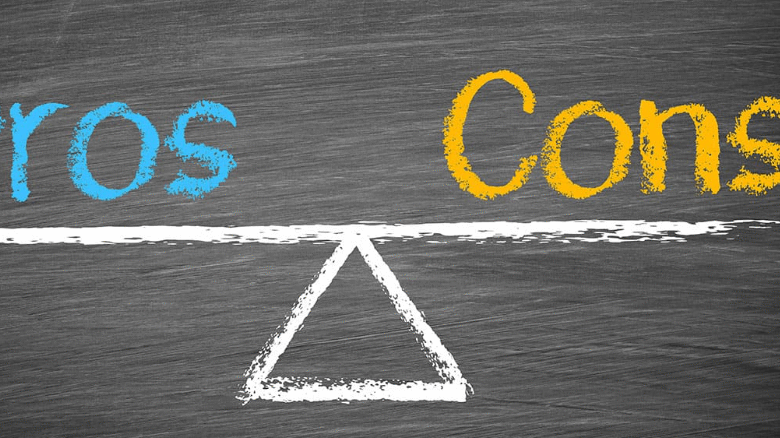The Pros and Cons of Forming a Company vs. Staying a Sole Trader

Introduction
Choosing how to run your business is a big decision. One of the first things new entrepreneurs must decide is: Should I form a company or stay a sole trader?
Both options have benefits and downsides. What works for one person may not work for another.
This article will help you understand the key differences between the two. It will explain the pros and cons of company formation in a simple way, so you can make the right choice for your business.
Understanding the Basics
What Is a Sole Trader?
A sole trader is someone who runs a business alone. It’s the simplest business structure.
You are the business. There’s no legal separation between you and your work.
Common examples:
- Freelancers
- Local shop owners
- Independent consultants
What Is a Company?
A company is a legal entity that is separate from its owners. You must register it officially.
Types of companies include:
- LLC (Limited Liability Company)
- Ltd (Private Limited Company)
The company can own property, enter contracts, and be sued — not you personally.
Legal and Administrative Differences
Registration Requirements
Sole Trader:
- Very simple and quick to start
- Often just need to register with the tax authority
Company:
- Requires formal incorporation
- You must file documents like Articles of Incorporation or a Memorandum
Ongoing Compliance and Paperwork
Sole Trader:
- Only basic tax returns needed
- Less record-keeping
Company:
- Must file annual reports
- May need board meeting notes and separate accounts
- More government reporting
Cost of Setup and Maintenance
Sole Trader:
- Usually free or very cheap to start
- Fewer ongoing costs
Company:
- Setup fees for registration
- May need accountants, lawyers, or digital platforms
- Ongoing costs like filing fees and taxes
Taxation Differences
Sole Trader Tax Responsibilities
- All income is taxed as personal income
- You pay self-employment tax
- Tax return is simpler
Company Tax Responsibilities
- Company pays corporate tax on profits
- You can pay yourself a salary or dividends (or both)
- Double taxation may apply in some countries
Tax Planning Flexibility
- Companies often allow better tax planning
- You can delay or split income
- VAT or GST registration rules may differ
Liability and Legal Protection
Personal Liability as a Sole Trader
- You are fully responsible for all business debts
- If someone sues your business, they can take your personal assets
Limited Liability in a Company
- The company is a separate legal body
- Your personal assets are protected in most cases
- You only risk what you invest in the company
Business Image and Credibility
Professional Perception
- Companies are often seen as more serious and trustworthy
- This can help you win larger contracts or investors
Brand and Identity
- A company name is officially registered and protected
- Easier to build a strong brand and online presence
Financing and Growth Opportunities
Access to Capital
Sole Trader:
- Harder to raise money from investors or banks
- You may rely on personal savings or small loans
Company:
- Can issue shares or raise venture capital
- Easier to apply for business loans
See also The Importance of Keeping Proper Tax Records (and How to Do It Right)
Scaling the Business
- Companies can grow faster
- You can bring in partners, hire employees, or open branches
- A more flexible structure for long-term growth
Pros and Cons Summary
Sole Trader – Pros and Cons
Pros
- Easy and cheap to set up
- Full control of the business
- Less paperwork
Cons
- Unlimited personal liability
- Harder to get funding
- May seem less professional
Company – Pros and Cons
Pros
- Limited liability protection
- Better tax planning opportunities
- More room to grow and scale
Cons
- More rules and regulations
- Setup and maintenance costs
- You may have less personal flexibility
How to Choose What’s Right for You
Factors to Consider
- What are your long-term goals?
- How much risk are you comfortable with?
- Do you want to keep things small or grow big?
- What are the industry standards where you operate?
When to Make the Switch
You might start as a sole trader and switch to a company later. It makes sense to switch when:
- Your income grows steadily
- You plan to hire employees
- You need outside funding
- Your business risks increase
Conclusion
Both options — staying a sole trader or forming a company — have their benefits. It depends on your business needs, future goals, and how much risk you’re ready to take.
Quick Recap:
- Sole trader = simple, flexible, and low-cost
- Company = professional, scalable, and safer legally
There’s no right or wrong answer — just the best fit for you right now.





